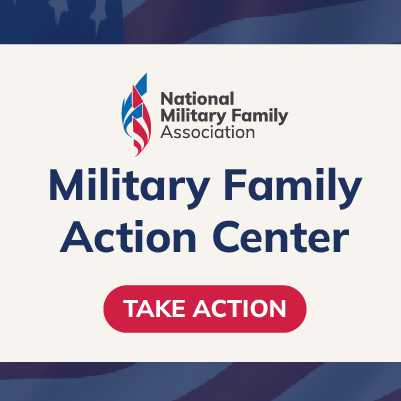As military families ourselves, we know the issues that matter most to military families. And who better to advocate for those important issues?
NMFA stands in support of the families who serve silently and sacrifice daily because we know what it’s like to be a military family. Whether it is writing letters in support of legislation, keeping track of bills in Congress, or providing testimony, we are the voice behind our military family force. We stay constantly updated on the latest issues affecting families, we amplify their concerns, and work to guarantee they have the best quality of life as their loved one serves our country.
Learn more about these issues and how you can stand behind military families, too.
Military families deserve better during PCS moves.
The Global Household Goods Contract (GHC) has caused delays, financial strain, and lost belongings, putting families and mission readiness at risk. Congress must step in to pause this failing system, improve oversight, and ensure families are reimbursed for their moving expenses. Take action now and urge lawmakers to support military families—send a message today!
NMFA urges Congress to build and expand upon the work of the House Armed Services Committee’s Quality of Life Panel to prioritize these critical issues impacting military families today:
Expand and enhance the Work Opportunity Tax Credit (WOTC) to include military spouses.
Military spouses face unemployment rates nearly three times the national average due to frequent relocations and career disruptions. Improved tracking of military spouse employment and expansion of the WOTC to incentivize businesses to hire military spouses will help address low household income.
Expand TRICARE coverage to include assisted reproductive technology (ART), including IVF.
Currently, TRICARE only provides fertility treatment in extremely limited circumstances, leaving many families to bear significant out-of-pocket costs for necessary care. As federal civilian employees gain this coverage starting in 2025, Congress must ensure military families receive the same support to access the care necessary to grow their families.
Recognize pregnancy as a Qualifying Life Event (QLE) under TRICARE.
Currently, pregnancy is not recognized as a QLE under TRICARE, preventing expectant mothers from switching plans outside the annual Open Season. This can create challenges, especially in areas with limited obstetric care or inadequate provider networks. Recognizing pregnancy as a QLE would allow families to select plans better suited to their maternity care needs, ensuring timely prenatal care and reducing financial strain.
Extend TRICARE coverage for young adult dependents up to age 26.
TRICARE currently ends coverage for young adult dependents at age 21 (or 23 for full-time students), forcing military families to shoulder additional costs for continued health care coverage. Civilian employer plans cover dependents up to age 26 at no extra cost, and TRICARE must be aligned to ensure continuity of coverage for young adults.
Improve the calculations for determining the Basic Allowance for Housing (BAH.)
Ensure that the methodology used by the Department of Defense (DoD) to calculate BAH rates adequately captures local housing costs and allows families to afford safe, high-quality housing.
Our Legislative Priorities are available in a one-page printable format.
Previous Legislative Priorities are also available in a one-page printable format.

